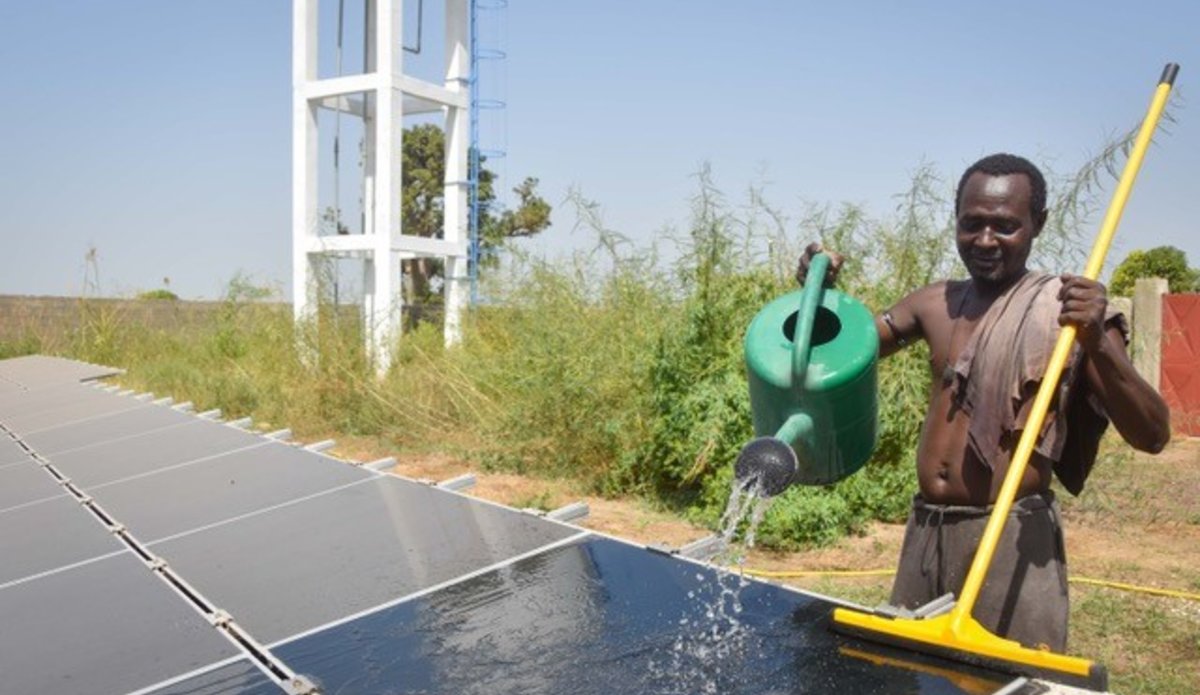Climate Smart Agriculture and Renewable Energy initiatives aim to transform Sahel
On the occasion of the Annual Meetings of the International Monetary Fund and the World Bank, the United Nations, in partnership with the World Bank, the G5 Sahel and the Sahel-Alliance organized a high-level meeting on the Sahel on 13 October 2018, in Bali, Indonesia. The event served as an opportunity to explore avenues of cooperation towards further advancing the United Nations Integrated Strategy for the Sahel (UNISS) through its UN Support Plan.
The event kicked off with the presentation of two major initiatives aiming at scaling up efforts, transforming the economies of the region and changing peoples’ life in the Sahel; namely integrated value chain climate resilient agriculture and renewable energy.
The two initiatives are among the 21 flagship programmes identified by the UN System to ensure a more integrated approach to the Sahel crisis through joint programming and collaboration towards strengthening resilience of communities with a specific focus on women and youth. The two initiatives will contribute to ensure food security in the Sahel through sustainable agriculture, boost market expansion, innovations a by providing local and rural communities with access to energy and economic opportunities.
UN Women Executive Director, Phumzile Mlambo-Ngcuka, said in her opening speech that « Enhancing agricultural production is key to realizing the Sustainable Development Goals and leaving no one behind in the Sahel. But we need to do this in a way that fully engages women and youth, and is adapted to the challenges posed by climate change. We have seen the power of climate-smart agriculture to address these impacts. »
The Minister of Finance of Nigeria, Ms Zainab Ahmed, mentioned in her remarks that « The UN Support Plan for the Sahel is contributing to enhancing the peace and security nexus and changing the narrative on the region. This is fundamental because, only a holistic approach that builds upon the numerous assets and opportunities that the Sahel offers, can we bring about the peace and stability we want ».
Mr. Achim Steiner, UNDP Admnistrator, underlined the imperative for an integrated, comprehensive and well-coordinated framework for partners’ interventions in the Sahel based on global and regional agendas – Agenda 2030 and the African Union’s Agenda 2063, remains a precondition. »
In his closing remarks, the UN Secretary-General's Special Adviser for the Sahel, M. Ibrahim Thiaw, called on the international community to « join efforts in the upcoming period, both in terms of rolling out the two transformative initiatives, investing in business opportunities in the Sahel and mobilizing political and financial support for the overall implementation of the UNISS. »
Participants called for a more forward-looking approach and more positive narratives on the Sahel, showcasing the enormous richness and opportunities in the region that must be acknowledged by the international community while fulfilling its mission. The event resulted in stronger commitment and strengthened partnership in the climate and energy sectors, including though creation of business opportunities in the region.
 UN
UN


